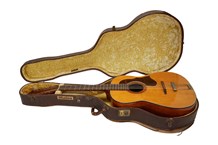Previously limited to the law enforcement community, the database became open to all interested users free of charge last month.
Auction houses, dealers and collectors, as well as museums and other public cultural bodies, will now be able to access the database of some 34,000 stolen objects after filling out an online application form.
This is the first international publicly-funded database of its kind to be available in this way on the web, and it will continue to be updated from Interpol headquarters in Lyon when they receive new information on stolen works of art worldwide.
Previous recommendations endorsed by the UK government for a publicly-funded database of stolen art were eventually scrapped in 2001 after the cost for the scheme was estimated at £4m a year.
Questions remain as to whether the Interpol database is either sufficiently comprehensive or user-friendly to be used as a realistic tool for the day-to-day trade.
However, Interpol believe that this initiative will make it much more difficult for a buyer or seller to claim they did not have the opportunity to check whether an item was recorded as stolen.
The co-ordinator of Interpol’s works of art department Karl Heinz Kind said the initiative represented “an important tool to counter the illicit trafficking of cultural property effectively”.
“The inclusion of a stolen cultural property item into the database, and extensive online access, represents an important barrier …by making its sale more difficult,” he said.
He said that increased reporting activities by Interpol’s 187 member countries would also be expected so that they could all take full advantage of the benefits of information sharing, as with other types of crime reporting.
The available information does not include nominal data, but is strictly object-related information such as descriptions and photographs of the stolen goods.
The online access to the database replaces Interpol’s Stolen Works of Art DVD previously made available upon application.
The application form for the Interpol database is available online at www.interpol.int/Public/WorkOfArt/dbaccess.asp. The information users are required to give includes passport details.




